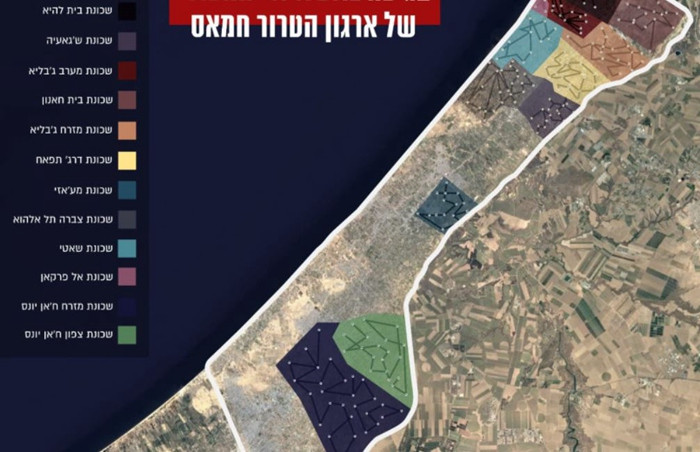In the wake of a six-week conflict between Israel and Hamas that has resulted in thousands of deaths in the Gaza Strip, Qatar's Ministry of Foreign Affairs confirmed on November 22 that a temporary four-day ceasefire has been reached between Hamas and Israel. This agreement, mediated by Qatar, Egypt, and the United States, is expected to commence on Thursday and may be extended for several days after its initial period.
Before Qatar's announcement, the Israeli cabinet had approved the temporary ceasefire agreement with Hamas overnight. This marks the first temporary ceasefire between Hamas and Israel since the conflict began on October 7. Israeli Prime Minister Benjamin Netanyahu emphasized that Israel's fight against Hamas is not over and military operations in the Gaza Strip will continue.
Efforts to halt the conflict have intensified, with governments and civil society organizations increasing pressure. South Africa convened an online summit of BRICS nations, calling for an immediate ceasefire between Israel and Palestine. A delegation of officials from Muslim countries has been visiting the five permanent members of the UN Security Council in rotation.
Activists from Europe and Turkey have organized a large-scale maritime protest, with 1,000 vessels set to sail from Turkey to Gaza, aiming to disrupt Israeli maritime shipping.
Under the ceasefire agreement, Hamas will release 50 women and children hostages held in the Gaza Strip within four days. In exchange, Israel will release a group of Palestinian female prisoners and minors, and allow larger-scale humanitarian aid, including much-needed fuel, into Gaza.
Israel had previously refused to allow fuel into Gaza, fearing it would end up in Hamas's hands. Due to the fuel shortage, most hospitals in Gaza have lost power, and the United Nations Relief and Works Agency for Palestine Refugees in the Near East is on the brink of suspending its humanitarian operations in Gaza.
The Israeli cabinet began discussing the ceasefire agreement on Tuesday night, continuing into Wednesday morning. Netanyahu's office stated that the release of 50 hostages by Hamas within four days is the first phase. In the second phase, if Hamas releases 10 hostages each day, the ceasefire will be extended accordingly.
Hamas holds over 240 hostages in Gaza, including Israeli citizens, soldiers, and nationals from the United States, France, among others. U.S. officials revealed that three Americans would be among those released in the first phase. Prior to this ceasefire agreement, Hamas had released four hostages, including an American mother and daughter and two elderly Israelis.
Hamas will not release Israeli soldiers in this round of hostage releases. Reports suggest that Hamas plans to keep Israeli soldiers until the end, to exchange for Palestinian militants imprisoned by Israel.
The exact number of Palestinian prisoners to be released by Israel has not been disclosed. According to Hamas, Israel will release 150 Palestinian women and minors under the age of 19.
During the ceasefire, hundreds of vehicles carrying relief supplies will be allowed to enter Gaza through Egypt. Israel will halt ground operations in Gaza, stop airstrikes in the southern part of Gaza, and suspend airstrikes in the northern part for six hours a day.
Once the ceasefire agreement takes effect, Qatar will oversee its implementation, maintaining communication with Israel, Hamas, the United States, and the International Red Cross to ensure compliance.
Qatar's role as a mediator in conflicts, aiming to expand its international influence, is a focal point of its foreign policy. Qatar has mediated in crises in Lebanon, Sudan, Yemen, Afghanistan, and assisted in evacuations during the Taliban's takeover of Afghanistan.
In the Israel-Palestine issue, Qatar is a significant aid provider to Gaza and hosts a political office for Hamas in its capital, Doha. Meanwhile, Qatar maintains trade relations with Israel and is a key ally of the United States in the Middle East, hosting the largest U.S. military base in the region.
However, Qatar's successful mediation does not signify an end to the Israel-Palestine conflict. Netanyahu has stressed that Israel's military operations in Gaza are not over.
His office stated that the Israeli government and defense forces will continue to fight to ensure the release of all hostages. Israel aims to "complete the task of clearing Hamas and ensure that Gaza can no longer pose any threat to Israel."
The last count of deaths in the Gaza Strip by the health department was on November 10, with 11,000 deaths, two-thirds of whom were women and children. The health department in Gaza stated on Tuesday that it could no longer continue counting the dead due to the collapse of the health system and the difficulty of extracting bodies from the rubble. The health department in the West Bank, controlled by the Palestinian National Authority, reported that the death toll in Gaza had risen to 13,000. However, the West Bank authorities did not explain their method of data collection.
Previously, Israel focused its operations in northern Gaza, urging residents to move south. Now, Israel's operations have expanded to the entire Gaza Strip, with the south also potentially becoming a battleground for Israeli ground attacks.
On Tuesday, South Africa convened an online summit of BRICS nations specifically to discuss the Israel-Palestine conflict. Leaders from Saudi Arabia, Egypt, the UAE, Iran, Ethiopia, Argentina, and UN Secretary-General António Guterres also attended the summit. In August, the BRICS group announced the invitation of these six countries as new members. The BRICS nations urged an immediate and lasting humanitarian ceasefire in Gaza and a return to the two-state solution.
This special summit, held by the BRICS nations specifically for a regional dispute, is seen as a collective voice of the "Global South" on the Israel-Palestine issue.
Meanwhile, a delegation of senior officials from predominantly Muslim countries, including Turkey, Qatar, Egypt, Jordan, Nigeria, Saudi Arabia, Indonesia, and the Palestinian National Authority, has been formed. This delegation is visiting each of the five permanent members of the UN Security Council, urging them to press for a complete ceasefire in Gaza and a return to the two-state solution.
In a civilian initiative, Turkish activist Volkan Okçu announced that over 1,000 ships would set sail from Turkey to Gaza. Their goal is to break the Israeli blockade and disrupt Israel's maritime shipping. The action will involve 4,500 participants from 40 countries, including Jews who oppose Zionism. The fleet will include 313 vessels with Russian activists, 104 with Spanish activists, and 12 with Turkish activists, with the number of Turkish vessels potentially increasing.
The fleet plans to depart from Turkey on Thursday, with Cyprus as its first stop, before heading to the Israeli port of Ashdod in the west. The ships will fly the flags of various countries, including the United States, the United Kingdom, Luxembourg, Russia, Germany, Spain, and Poland. Participants from Europe and the United States have reportedly spent an average of $14,000 each to join this activity.
Okçu emphasized that the fleet would strictly adhere to international law, carry no weapons, and avoid giving Israel any pretext to intercept the ships midway. The plan is to create a blockade in the international waters along the Israeli coast, disrupting Israel's maritime shipping for a week or ten days.
In 2010, a similar initiative supporting Palestine was organized, known as the "Gaza Freedom Flotilla." The flotilla was intercepted by the Israeli navy, which directed the ships to head to the Israeli port of Ashdod, a demand the activists refused. Israeli soldiers then boarded one of the ships carrying 600 activists, leading to a conflict that resulted in the death of 10 Turkish activists and injuries to 10 Israeli soldiers.
This incident led to a diplomatic crisis between Israel and Turkey, with Turkey recalling its ambassador to Israel. It was not until 2016, when Israel agreed to pay $20 million in compensation to the families of the Turkish victims and allowed Turkey to provide aid to Gaza, that Turkey agreed not to pursue charges against the Israeli soldiers.
Okçu stated that when the fleet enters the waters off Gaza, the Israeli military might search the ships, forcibly tow them away, or issue fines. However, he believes that if Israel attacks such a large-scale international peace fleet, it would incur a heavy political cost. He expressed confidence that the bloody events of 13 years ago would not be repeated.






